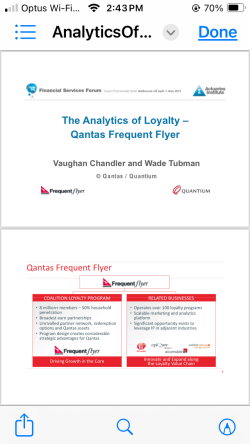Mr H
Established Member
- Joined
- Dec 5, 2013
- Posts
- 3,477
Intra Europe and SH Asia is far better value IMO.
Like many programs, it has sweet spots. Very short haul business class is one of them. But the fundamental disadvantages with Avios is that mostly you can’t get multiple flights in one ticket - including connecting flights - without phoning to do the booking and paying a hefty fee for the privilege. And if intra Europe J is a selling point then it is offset by the way European J flights use economy seats.
















